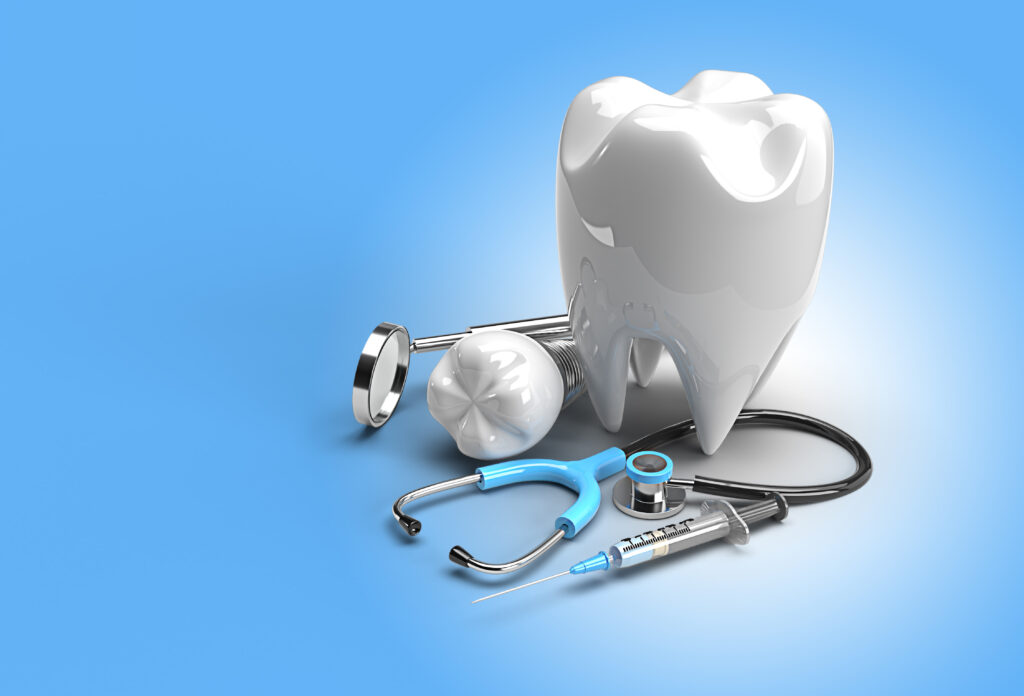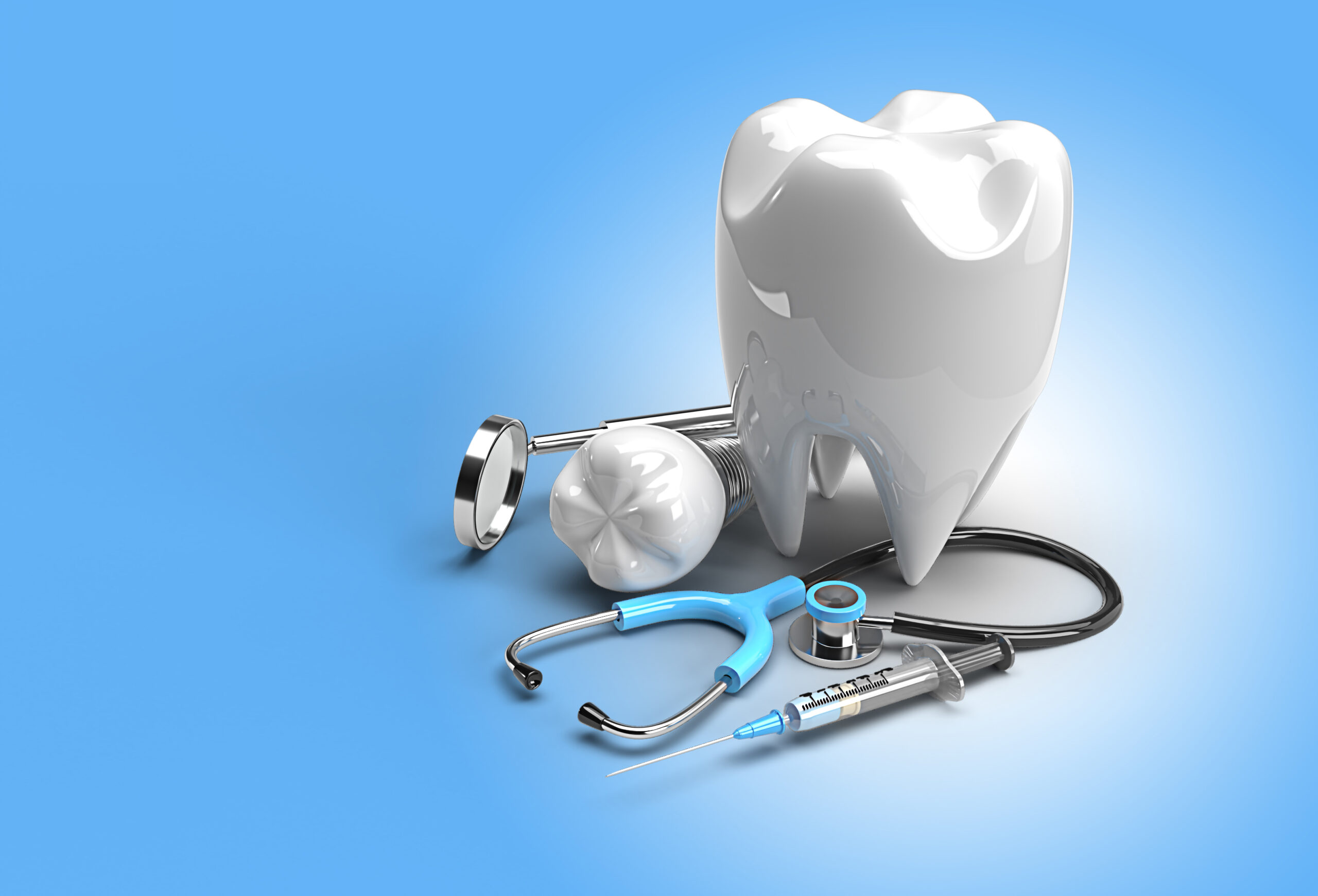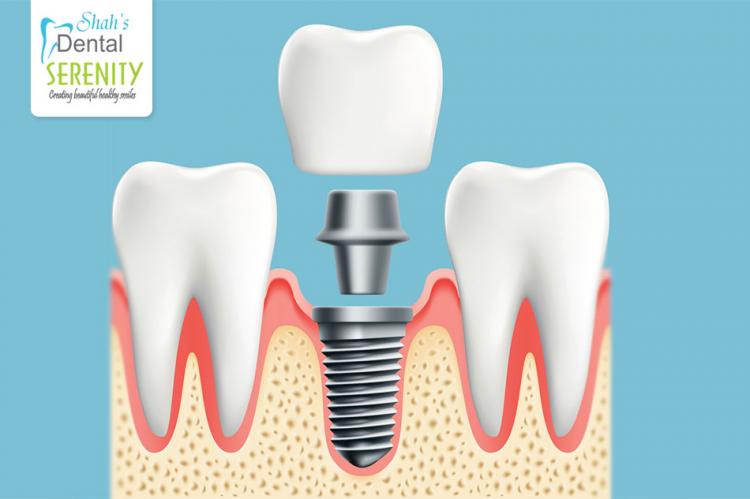What are Dental Implants and How Do They Work?
Introduction:
Dental implants are an increasingly popular option for tooth replacement, and for good reason. They offer a permanent, durable solution that can provide a natural-looking and functional replacement for missing teeth. Essentially, dental implants are metal posts or frames that are surgically placed into the jawbone beneath the gums. Once they are in place, the dentist can mount replacement teeth onto them.
The importance of dental implants lies not only in their cosmetic benefits but also in the functional benefits they offer. When a tooth is missing, the jawbone can begin to deteriorate, leading to a host of problems such as further tooth loss, shifting teeth, and changes to the facial structure. Dental implants can help prevent these issues by providing the stimulation that the jawbone needs to remain healthy and strong.
Whether you have lost one or more teeth due to injury, decay, or other factors, dental implants may be a viable option for restoring your smile and improving your overall oral health. In the following sections, we’ll explore the details of how dental implants work, who is a good candidate for them, the procedure involved, and the potential benefits and risks associated with this tooth replacement option.
What are Dental Implants?
Dental implants are a type of tooth replacement that involves surgically placing a small post or frame into the jawbone to support a replacement tooth. The implant itself is typically made of titanium, which is known for its durability and ability to fuse with bone.
There are two main types of dental implants: endosteal and subperiosteal. Endosteal implants are the most common and are placed directly into the jawbone. They consist of a small screw or cylinder that serves as the implant, along with an abutment that attaches to the replacement tooth or teeth. Endosteal implants are typically used for patients with enough jawbone density to support the implant.
Subperiosteal implants, on the other hand, are placed on top of the jawbone but beneath the gums. This type of implant may be used for patients with lower bone density or those who are unable to undergo bone grafting procedures. Subperiosteal implants are less commonly used than endosteal implants but can still provide an effective solution for certain patients.
In addition to these two main types, there are also a variety of other implant designs and configurations available, each with their own unique advantages and disadvantages. Your dentist or oral surgeon can help determine which type of dental implant is best suited for your individual needs and situation.
How Do Dental Implants Work?
Dental implants work by providing a permanent replacement for missing teeth that mimics the look and function of natural teeth. The process of dental implantation typically involves several steps.
First, the implant is surgically placed into the jawbone. Over the course of several months, the bone will grow around the implant in a process called osseointegration. Once the implant has fused with the bone, an abutment is attached to the implant, which serves as the foundation for the replacement tooth or teeth. Finally, a custom-made crown or bridge is attached to the abutment to complete the restoration.
One of the key advantages of dental implants is the importance of osseointegration. Because the implant is fused directly to the jawbone, it provides the stimulation that the bone needs to remain healthy and strong. This can help prevent further bone loss and maintain the integrity of the surrounding teeth.
Compared to other tooth replacement options such as dentures or bridges, dental implants offer several benefits. They are more durable and long-lasting, often lasting a lifetime with proper care. They also provide a more natural look and feel, as they are anchored directly into the jawbone rather than relying on adjacent teeth or suction to stay in place. Additionally, dental implants do not require special cleaning or maintenance beyond regular brushing and flossing.
Overall, dental implants offer a highly effective and long-lasting solution for tooth replacement, with the potential to improve both your oral health and overall quality of life.
Who is a Good Candidate for Dental Implants?
While dental implants can be an excellent solution for many people with missing teeth, not everyone is a good candidate for this procedure. Before getting dental implants, it’s important to consider several factors, including your dental and medical history, pre-existing conditions, and overall oral health.
Your dental and medical history will be important in determining whether dental implants are a good option for you. Factors such as gum disease, tooth decay, and previous dental work may affect your candidacy for implants. Additionally, certain medical conditions such as diabetes or immune disorders may also affect your ability to undergo the implant procedure.
There are also several pre-existing conditions that may affect your dental implant candidacy. For example, patients with insufficient bone density in the jaw may require additional procedures such as bone grafting to support the implant. Additionally, patients with certain habits such as smoking or teeth grinding may be advised against dental implants due to potential complications or reduced success rates.
Overall, a thorough evaluation by a qualified dental professional is essential to determine whether dental implants are a good option for you. Factors such as your age, overall health, and lifestyle habits may also be taken into consideration. By carefully considering these factors and working with your dentist to develop a personalized treatment plan, you can help ensure the best possible outcomes for your dental implant procedure.
The Dental Implant Procedure
The dental implant procedure typically involves several steps and can take several months to complete. Here’s a breakdown of what you can expect during the dental implant process:
- Initial consultation: During your first visit, your dentist will evaluate your dental and medical history, take x-rays and impressions of your teeth, and create a personalized treatment plan.
- Implant placement: The next step involves surgically placing the implant into your jawbone. This is typically done under local anesthesia or sedation to minimize any discomfort.
- Osseointegration: Over the next several months, the implant will gradually fuse with the surrounding bone in a process called osseointegration. During this time, you may need to avoid certain foods or activities to allow the implant to heal properly.
- Abutment placement: Once the implant has fully integrated with the bone, an abutment will be attached to the implant to provide a foundation for the replacement tooth or teeth.
- Restoration placement: Finally, a custom-made crown or bridge will be attached to the abutment to complete the restoration.
Preparing for the dental implant procedure typically involves a thorough dental cleaning and evaluation, as well as following any instructions provided by your dentist regarding diet, medication, and other factors that may affect the success of the procedure.
During the recovery period, you may experience some mild discomfort, swelling, or bleeding, which can typically be managed with over-the-counter pain medications and ice packs. You may also need to avoid certain foods or activities for a period of time to allow the implant to heal properly.
After the procedure, it’s important to practice good oral hygiene habits and schedule regular follow-up appointments with your dentist to ensure the long-term success and health of your dental implant.
Benefits of Dental Implants
Dental implants offer a number of benefits over other tooth replacement options, including:
- Improved oral health and functionality: Unlike dentures or bridges, dental implants are anchored directly into the jawbone, which can help prevent bone loss and maintain the natural shape of the jaw. This can also improve the functionality of the teeth, allowing for more efficient chewing and speaking.
- Enhanced aesthetic appearance: Dental implants are designed to look and feel like natural teeth, which can help enhance the appearance of your smile and boost your self-confidence.
- Long-term durability and cost-effectiveness: With proper care and maintenance, dental implants can last for many years, and may even be a more cost-effective option over time compared to other tooth replacement options that may need to be replaced more frequently.
Additionally, dental implants can also help improve overall quality of life by allowing you to eat, speak, and smile with confidence, and by eliminating the discomfort and inconvenience of other tooth replacement options.
It’s important to discuss the potential benefits and risks of dental implants with your dentist, and to consider your individual needs and preferences when deciding on the best tooth replacement option for you.
Risks and Complications of Dental Implants
While dental implants are generally considered safe and effective, like any surgical procedure, there are some potential risks and complications to be aware of. These may include:
- Infection: Infection can occur at the implant site, particularly if proper oral hygiene is not maintained or if there is an underlying medical condition that affects the immune system.
- Nerve damage: In rare cases, dental implant surgery can cause damage to nearby nerves, resulting in numbness or tingling in the mouth or face.
- Implant failure: While rare, dental implants can sometimes fail to fuse properly with the jawbone or become loose over time, requiring additional surgery or replacement.
To minimize the risk of complications, it’s important to choose an experienced and qualified dentist or oral surgeon who specializes in dental implant surgery. Additionally, it’s important to maintain proper oral hygiene and follow all post-operative instructions provided by your dentist, including any dietary or activity restrictions.
If complications do occur, it’s important to seek prompt medical attention to prevent further complications or damage. Your dentist may recommend additional treatment or surgery to address the issue.
Ultimately, while the risks and complications of dental implants are relatively low, it’s important to carefully consider your individual needs and risks when deciding whether dental implants are the right tooth replacement option for you.
Conclusion
In conclusion, dental implants are an important tooth replacement option for individuals who have lost one or more teeth. They offer a number of benefits, including improved oral health, enhanced aesthetic appearance, and long-term durability. However, like any surgical procedure, there are some potential risks and complications to be aware of.
If you are considering dental implants, it’s important to discuss your options with an experienced dentist or oral surgeon who can help you determine if dental implants are the right choice for you. Additionally, it’s important to carefully consider your individual needs and preferences, as well as any potential risks or complications, before making a decision.
Overall, dental implants can be a highly effective and rewarding tooth replacement option for individuals who are good candidates for the procedure. With proper care and maintenance, dental implants can provide a long-lasting and natural-looking solution to missing teeth, allowing you to enjoy improved oral health and a confident smile.






